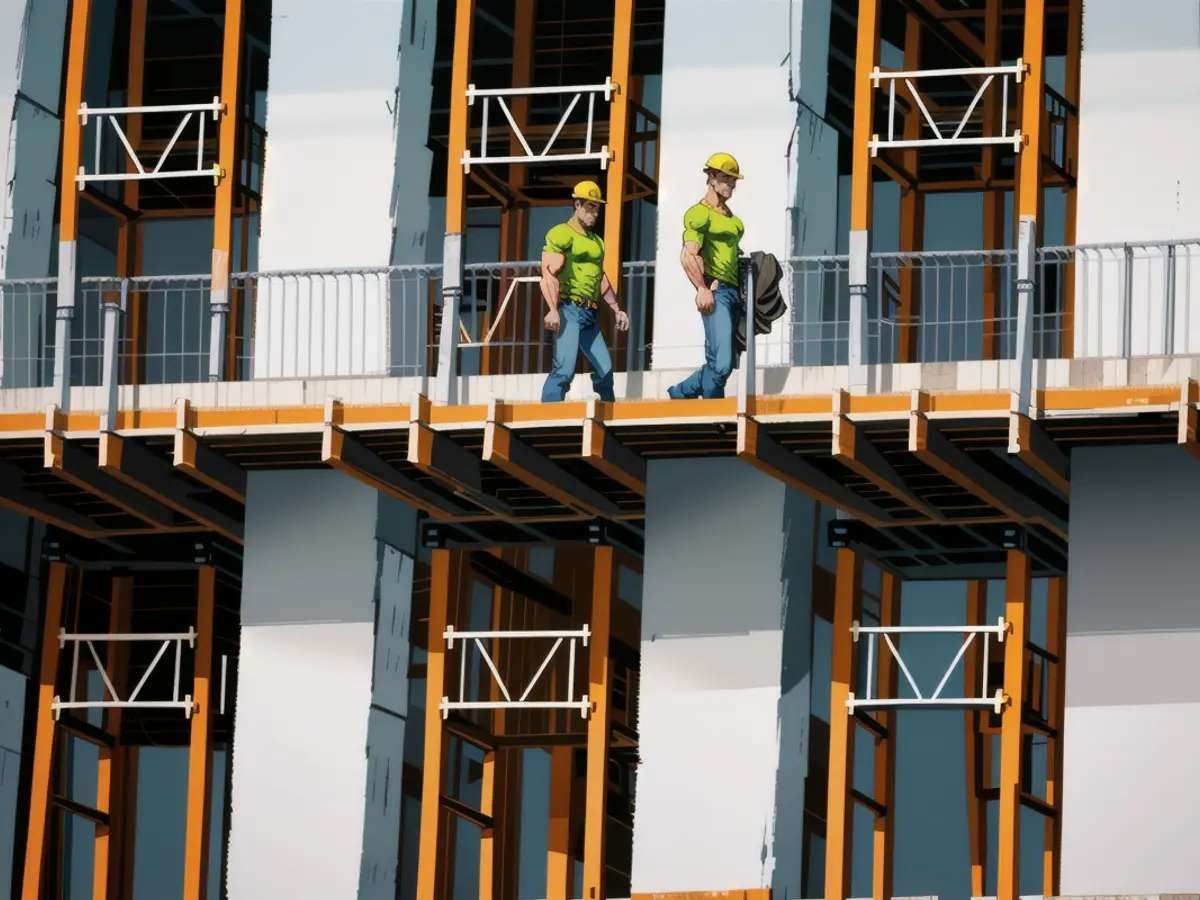Construction industry experiences a downward revision in forecast for 2024 predictions.
The year started with the assumption that the industry would witness a 3.5% fall in sales, but this has now been amended to a -4% decrease. Peter Hübner, the association president, points out that the industry is now in its fourth year of a construction recession and does not anticipate any improvement this year.
The construction sector is bracing for a loss of 10,000 jobs, which Hübner finds particularly distressing. The reason for the downturn is primarily because public construction is expected to perform weaker than envisaged.
In the sector of housing construction, the industry forecasts a 12% real decline in sales compared to the previous year. Moreover, the expectations for public construction have been modified from a marginal profit to a -0.5% shortfall, primarily due to lower projections for investments.
The only sector that is predicted to witness growth this year is civil engineering, with a +1.5% increase. This rise is mainly due to several large orders from railways, power grid operators, and public transportation.
The association released a study by the IW on Tuesday, which the construction industry had commissioned itself. According to this study, the primary challenge is a deficiency of investments - in both residential and public construction. In order to reach the estimated 355,000 new homes annually by 2030, investments would have to increase by roughly 20 billion euros a year.
Moreover, the IW study recommends enhanced investments of at least 33 billion euros annually in residential and non-residential buildings to fulfill the climate protection objectives. In public construction, the investments would then need to be increased by 75 billion euros a year. These additional investments would also improve Germany's economic standing.
The study further criticizes the industry's low productivity, which must be enhanced. This is increasingly vital in the light of emerging skill shortages. The analysis attributes the low productivity to excessive regulation in construction - including the separation of planning and construction, intricate standards and regulations, and attention to the greatest degree of individuality in buildings, all of which hinder productivity and cost-effective construction.
Hübner asserts that "we will have to construct with fewer people in the future and thus must be more productive." This can be accomplished through its own means, but the state also needs to "eliminate the numerous regulatory obstacles" - no industry is as regulated as construction.
Read also:
- According to the Sales forecast for 2024 by the Federation of the German Construction Industry, the construction industry is expected to experience a further decline.
- The Institute of the German Economy (IW) released a study on Tuesday, predicting that the construction industry will face a challenging year in 2024 due to a lack of investments.
- Peter Hübner, the association president, expressed his concern about the gloomy outlook for the construction industry in Cologne for the year 2024.
- The construction industry's forecast for 2024 indicates a potential loss of 10,000 jobs, which is causing distress within the sector, particularly in housing construction.
- The association's forecast for 2024 reveals that although civil engineering may experience growth, public construction is predicted to perform weaker than anticipated.
- The construction industry's forecast for 2024 suggests that in order to meet the goal of 355,000 new homes annually by 2030, investment levels need to significantly increase, particularly in residential and public construction.







